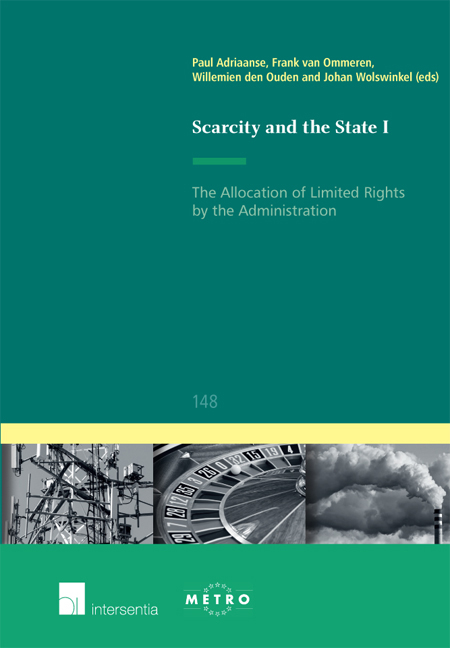Foreword
Published online by Cambridge University Press: 22 September 2018
Summary
This is an important, ambitious and timely book in an area of huge economic importance. It is directed to legislators, administrators and the courts. Its subject is one which has not, so far as I know, been comprehensively covered by any other, namely, the allocation to economic actors of limited rights by the European Union and Member States – rights to receive a subsidy or to licences to carry on an activity which can not lawfully be carried on without such a licence. A careful reading of the first chapter gives a good insight into what is being attempted by the authors.
The book does not walk again down well trodden paths but rather exposes and discusses a collection of often overlapping and at times conflicting Treaty provisions, Directives, Regulations, legal decisions and economic and political desiderata. It seeks to identify tools which will help to construct something orderly.
As a former judge of the Court of Justice of the European Union who has had to try with his colleagues to find a path through inconsistent case law and concepts it was a joy on being asked whether I would write this preface, to come across – alas too late – a draft of this book. It should help my successors to find a conceptually coherent approach to draft ing judgments in a particular field so that they do not conflict with other judgments in overlapping fields.
The law is currently being developed and is still sufficiently flexible and uncrystallised for this book to be in a position to make a significant contribution to that development. I hope that in due course it will be found possible to translate it into French – still the working language of the CJEU.
Konrad Schiemann
Former Judge of the Court of Justice of the European Union
- Type
- Chapter
- Information
- Scarcity and the StateThe Allocation of Limited Rights by the Administration, pp. v - viPublisher: IntersentiaPrint publication year: 2016



